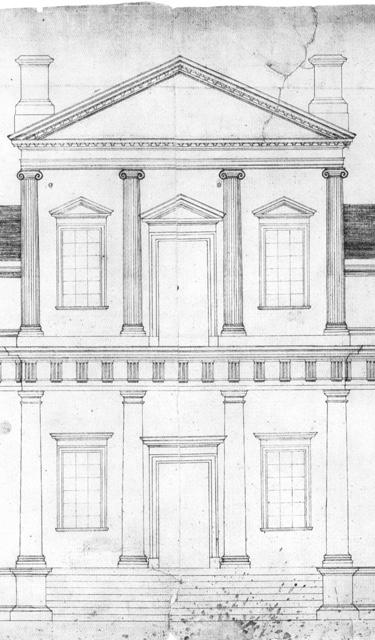




Thomas Jefferson believed only educated citizens could make the American experiment in self-government succeed. He proposed a system of broad, free, public education that was radical in his day and his founding of the University of Virginia partially achieved his larger goals.
Yet in Jefferson's lifetime and beyond, Blacks, both free and enslaved, were denied citizenship and women were excluded from full citizenship. Education was a key factor in the struggle of Monticello's enslaved community and their descendants to win their rights to full citizenship.
The impact of these endeavors and the legacy of Jefferson's ideas about accessible and equal education can still be seen today, as Americans continue to debate the ends, ways, and means to provide for a well-informed citizenry.

Unable to realize his vision of a system of public education from childhood to adulthood, Jefferson focused his energies to found the University of Virginia as a first step in achieving his larger goals.
Click for a podcast about the founding of the University of Virginia
In the ongoing journey to extend the full rights of citizenship to all Americans, the student body at the University of Virginia has grown to include people of color and all genders and identities.

"the people are safe depositories of their own liberty, and ... are not safe unless enlightened..."
~ Thomas Jefferson to L.W. Tazewell, 1805

The lives and educational achievements of descendants of Monticello's enslaved community exemplify a quest for full citizenship and to manifest American ideals.




"To give to every citizen the information he needs for the transaction of his own business. to enable him to calculate for himself, and to express and preserve his ideas, his contracts and accounts in writing. to improve, by reading, his morals and faculties. to understand his duties to his neighbors and country, and to discharge with competence the functions confided to him by either. to know his rights. to exercise with order and justice those he retains, to choose with discretion the fiduciary of those he delegates. and to notice their conduct with diligence, with candor and judgment. and in general, to observe with intelligence and faithfulness all the social relations under which he shall be placed."
Thomas Jefferson: Report for University of Virginia, 1818
A Civic Engagement Initiative sponsored by and in collaboration with The New York Community Trust – The Peter G. Peterson Fund. 
ADDRESS:
931 Thomas Jefferson Parkway
Charlottesville, VA 22902
GENERAL INFORMATION:
(434) 984-9800
